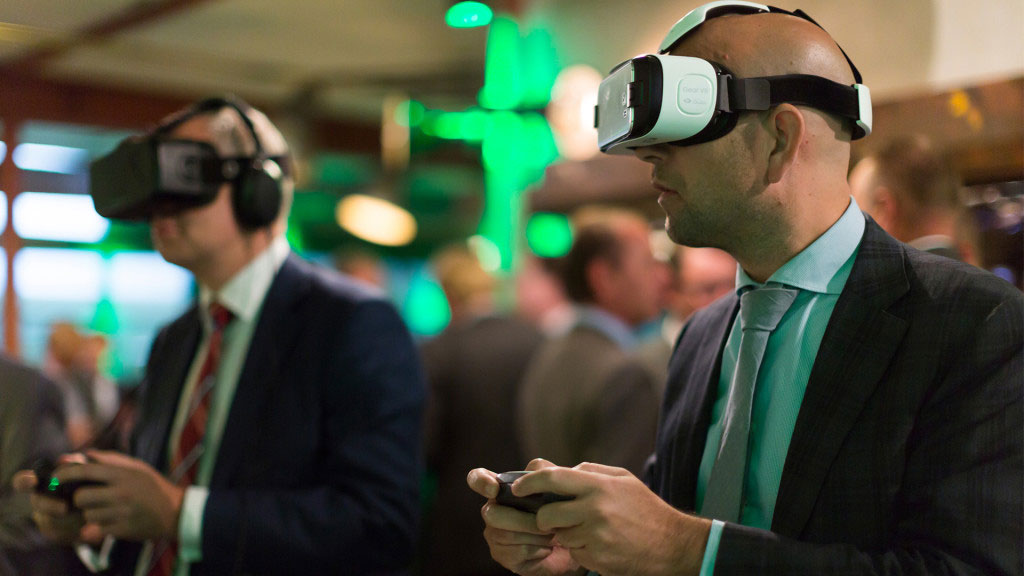
In today’s rapidly evolving digital landscape, Virtual Reality (VR) has emerged as a powerful tool that can transform the way businesses engage with their audiences. From gaming to education, VR has found numerous applications, and one area where it holds immense potential is business events. Organizers and businesses are now harnessing the capabilities of VR to create unique and immersive experiences that captivate attendees and elevate the impact of their events. In this article, we will explore how to effectively use VR for business events and make them truly unforgettable.
Businesses cannot buy all VR technology equipment to manage their one-day event. Business event organizers have the option to get the help of VR hire services for their one-day needs. This can help to use the latest technology without spending more. Business events can easily manage networking, showcasing products, and fostering partnerships.
Traditional events have their merits, but integrating VR can revolutionize the experience, you can make it more interactive and memorable for attendees. Let’s delve into the steps to harness the power of VR for your upcoming business events.
1. Pre-Event VR Promotion
VR can play a significant role in generating pre-event excitement. Create a captivating 360-degree VR teaser video showcasing the event venue, sneak peeks of keynote speakers, or glimpses of new product launches. Share this video on your website and social media channels to create a buzz and entice attendees to register for the event.
2. Virtual Venue Tours
One of the major advantages of Virtual Reality is the ability to virtually transport attendees to any location. Offer virtual venue tours to allow potential participants to explore the event space beforehand. This fosters familiarity with the venue, reduces anxiety, and ensures a seamless experience on the actual event day. When you are organizing large-scale business events, this technology can help a lot.
3. Interactive Product Demos
For businesses launching new products, VR provides an exciting platform for interactive demos. Design virtual product showcases that allow attendees to explore products in 3D, disassemble them, and understand their features engagingly and memorably. This level of interactivity can leave a lasting impression on potential customers and drive post-event conversions.
4. Virtual Keynote Speakers
Attracting influential keynote speakers can be challenging due to scheduling conflicts and travel limitations. However, with VR, you can overcome these hurdles by offering speakers the option to present virtually. This expands your pool of potential speakers and enables attendees to experience impactful presentations from industry leaders across the globe.
5. Networking in VR
Networking is a vital aspect of business events, and VR can make it more immersive and enjoyable. Developing its networking lounges where attendees can interact with avatars representing themselves. Implementing interactive elements like digital business card exchanges and virtual handshakes can foster meaningful connections and extend networking opportunities beyond the physical limitations of the event.
6. Gamification for Engagement
VR gaming experiences can add an element of fun and excitement to your business event. Develop VR games that are relevant to your industry or event theme. Integrate leaderboards and incentives for top scorers to encourage participation and healthy competition. Gamification not only increases attendee engagement but also serves as an effective promotional tool as participants share their experiences on social media.
7. Immersive Workshops and Training
For businesses conducting workshops or training sessions, it offers an innovative solution to enhance the learning experience. Virtual simulations allow attendees to practice real-life scenarios, hone their skills, and gain hands-on experience in a risk-free environment. VR training can significantly improve knowledge retention and participant satisfaction.
8. Analytics and Insights
VR technology provides valuable data and insights into attendee behavior. Analyze maps to understand which areas or activities within the event gathered the most interest. Utilize this data to optimize future events. You can create content to better meet attendees’ preferences. It will help you to make your next business event successful.
Conclusion
Incorporating Virtual Reality into your business events can elevate them to new heights. You can leave a lasting impression on attendees and drive tangible business outcomes. Stay ahead of the curve and get the help of VR hire technology to provide unique and immersive experiences. It will help you to be talked about long after the event concludes. Embrace this transformative technology, and your business events will become a high standard in your industry.